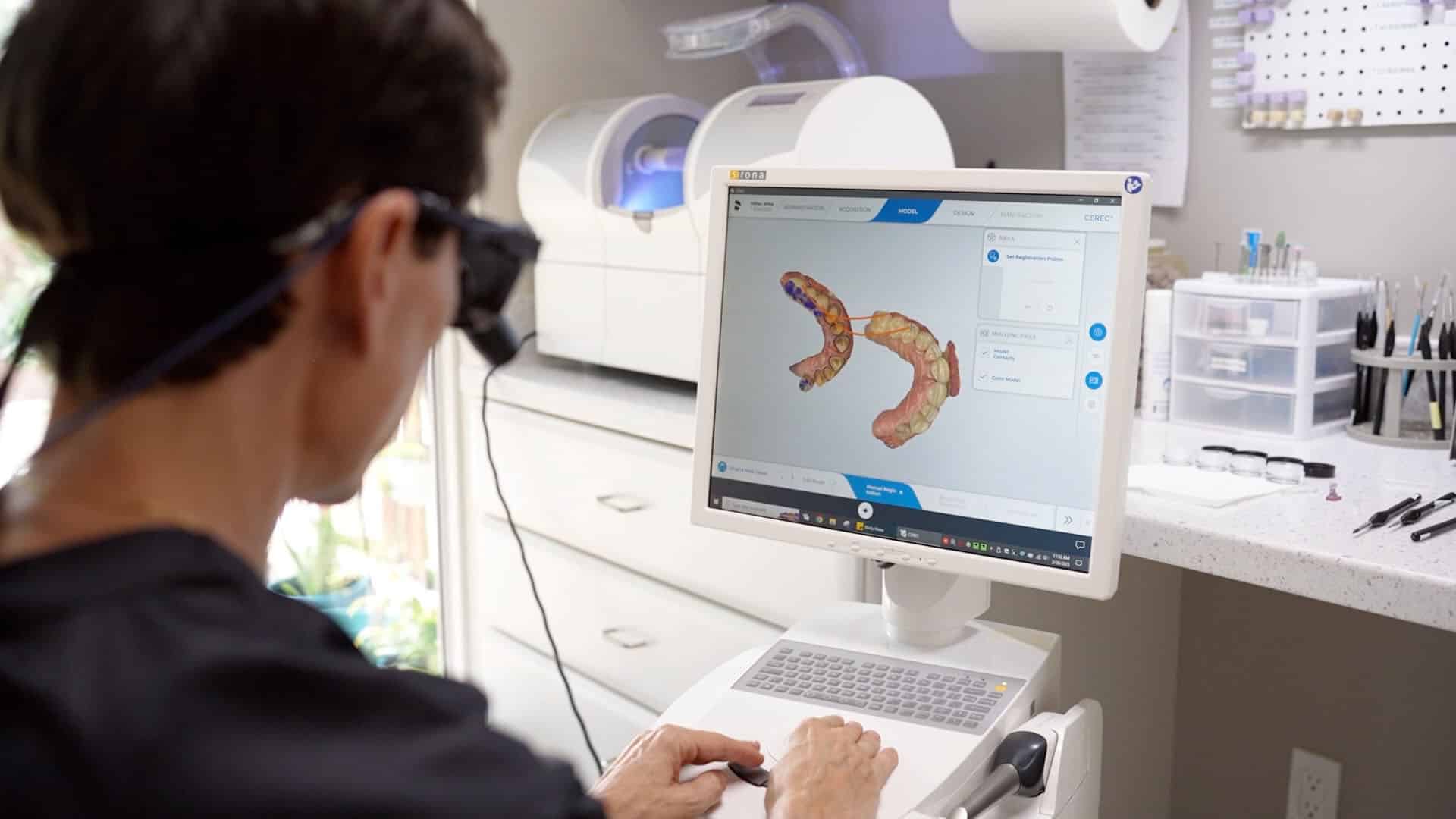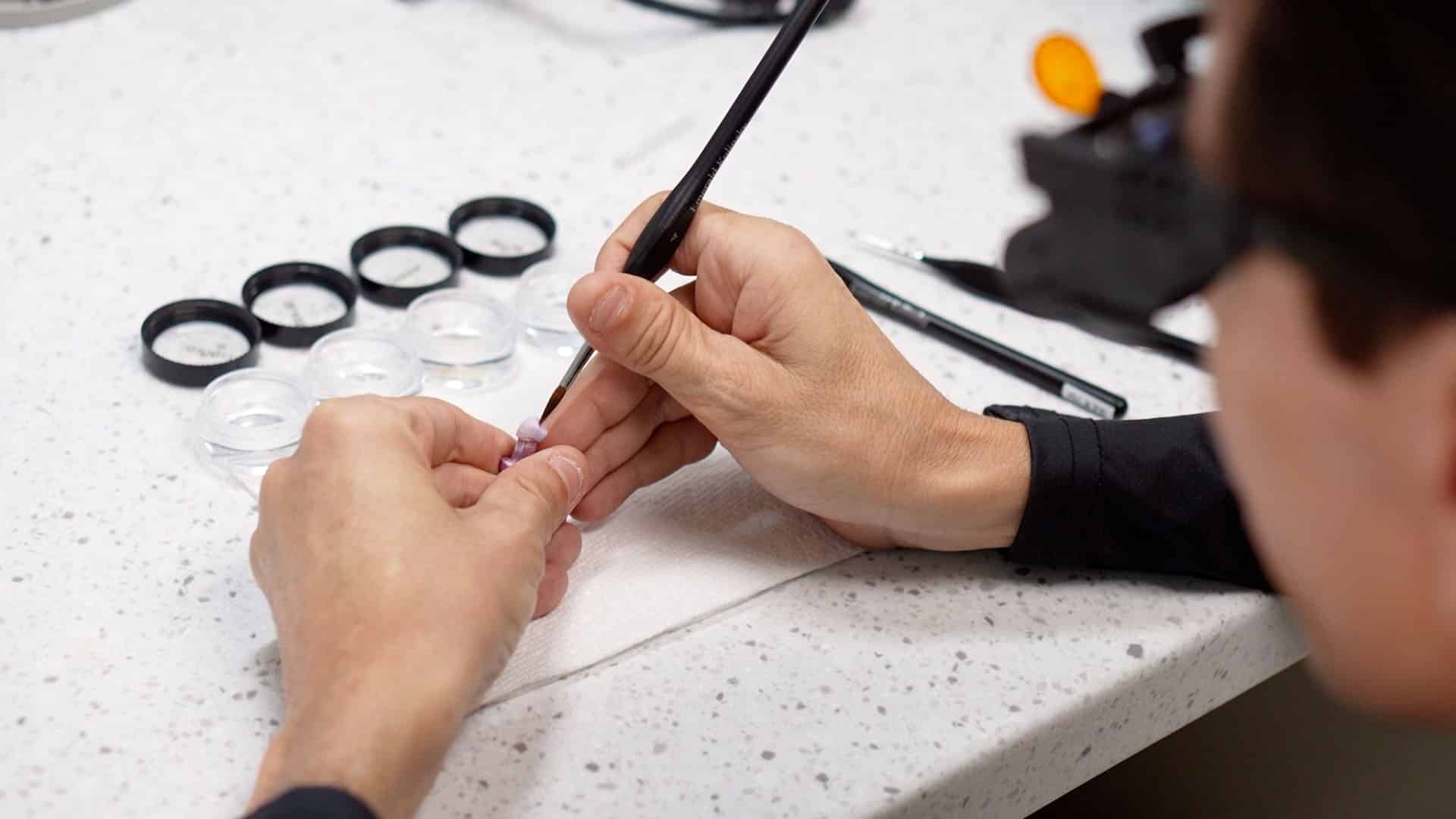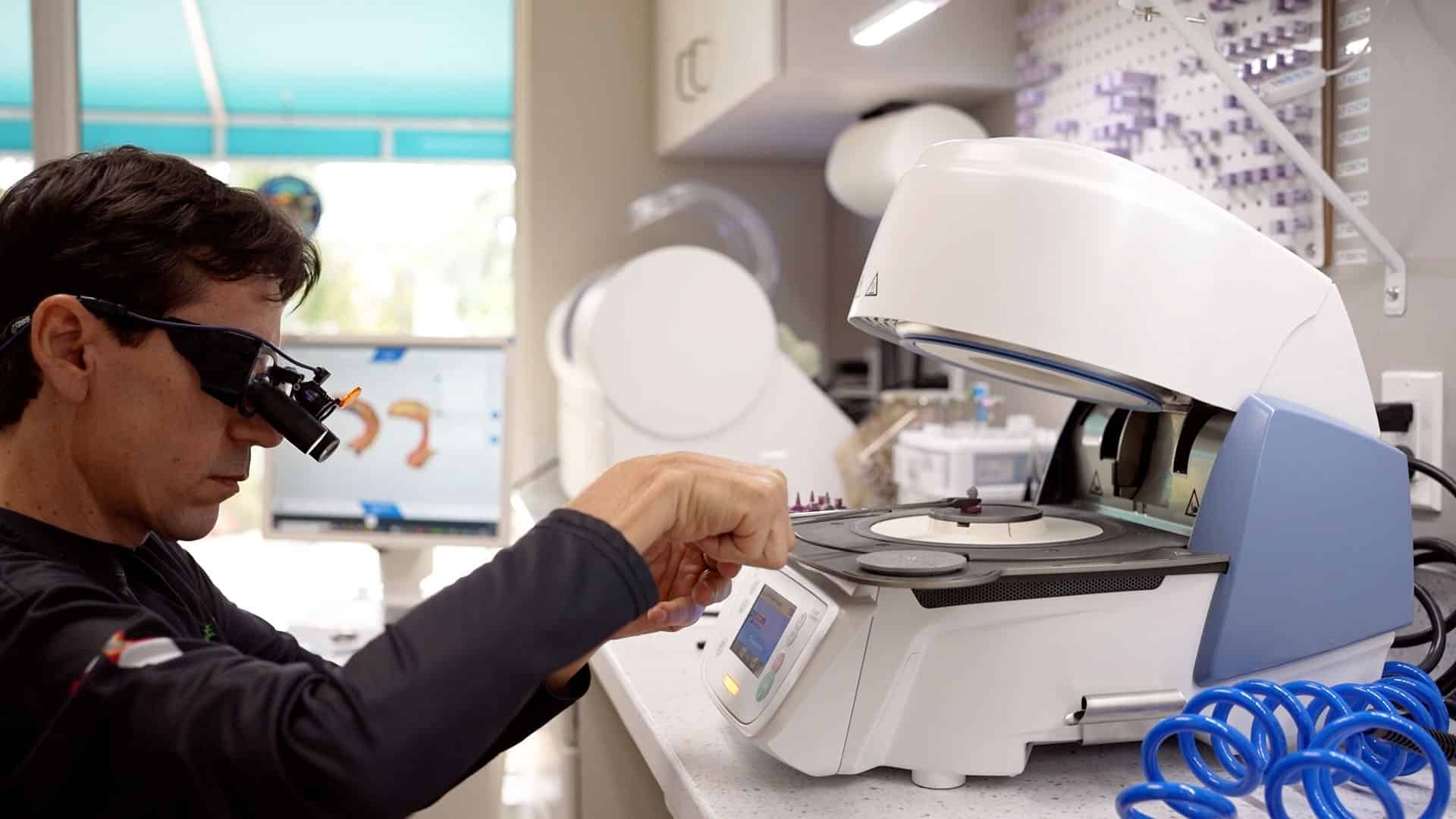If you want the best dentistry has to offer, Stuart Prosthetic Dentistry should be your dental office.
Dr. Tyler’s expertise is unsurpassed due to his training, certifications, and years of practice as both a prosthodontist and dental lab technician.
Dental Implants
A dental implant is the next best thing to the real thing. Nothing replaces your natural teeth, but dental implants come as close as it gets. Implants have been used in dentistry for many decades. Implants have been used in dentistry with outstanding success for many decades. Excitingly, technological advances in implant dentistry have made this highly desired option more predictable than ever.

Crowns
A crown is a dental restoration that completely covers the outside of a tooth that is cracked, broken, worn down, or severely decayed. If a tooth has more extensive decay, a dental crown may be the ideal aesthetic and functional restorative solution.
CEREC Same Day Crowns
Dr. Tyler has the training, skill, and technology to offer same-day crowns. CEREC is a breakthrough technology that allows dentists to create top-quality porcelain dental crowns in just one appointment.

Veneers
If you’re looking to revitalize your smile, dental veneers are a simple option. The best type of dentist to choose for cosmetic dental procedures such as veneers, is a prosthodontist, like Dr. Tyler.
Inlays & Onlays
Dental inlays are used instead of fillings to replace a small amount of tooth structure lost due to decay. Like fillings, inlays fit inside the tooth. Onlays also fit inside of the tooth, but additionally extend onto the chewing surface of a back tooth.
Implant Crowns & Bridges
An implant-supported crown is a dental prosthesis that replaces a missing tooth by inserting an artificial titanium root (dental implant) into the jawbone and attaching an artificial tooth (crown) to it. An implant-supported bridge is a dental bridge that is secured to two or more dental implants rather than relying on the adjacent natural teeth for support.
Implant Fixed Complete Prostheses
If you are missing all of your upper/lower teeth, and want the best prosthetic dentistry has to offer, then this is your option. Due to advances in technology and techniques in implant dentistry, these prostheses can be used to replace all failing teeth immediately (in one day). Like dentures, they replace both teeth and gum tissue. However, they cover much less of the tissue in your mouth due to the use of dental implants. Compared to dentures, these beautiful and functional teeth greatly improve your confidence and quality of life.

Implant Removable Dentures
An implant-retained removable prosthesis can replace both teeth and gum tissue as conventional dentures do. However, it acts more like your natural teeth than conventional dentures. The prosthesis is held in place securely even when you chew and speak.
Bridges
Dental implants are often considered the “gold standard” for the replacement of missing tooth or teeth. However, if you are missing a tooth or teeth and want or need to avoid dental implant treatment or a removable partial denture, then a fixed partial denture or bridge is what you’re looking for.
Dentures
Complete dentures are the most affordable way of replacing all your missing teeth. It is a removable prosthesis made of an esthetic plastic material (acrylic resin) forming both gums and denture teeth. They tend to cover the entire roof of the mouth to provide stability and can be very esthetically pleasing since they look very natural.
TMJ/TMD Treatment
The temporomandibular joint (TMJ) connects the jawbone to the skull. TMJ disorders often cause discomfort in the cheek, jaw, or ear areas and can affect normal jaw function.
